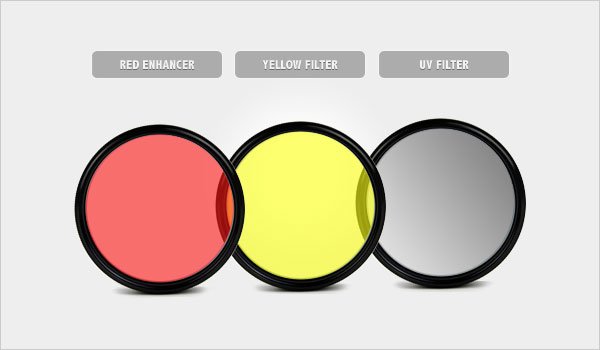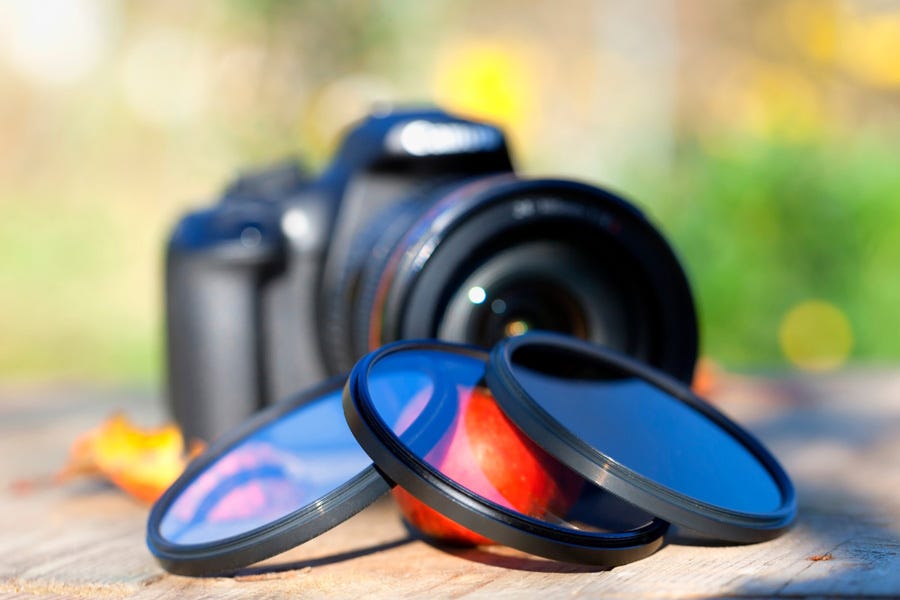Unlocking Photography: Understanding What Camera Lens Filters Do
Introduction
In the realm of photography, understanding your equipment plays a crucial role. That's why familiarity with the concept of camera lens filters is essential. These handy devices can dramatically transform your photos, depending on how you utilize them. This comprehensive guide will help unravel the mystery behind camera lens filters. We'll discuss what they are, how they function, the different types available, when to use them, and how they could enhance your photography skills. Let's delve in.
What are Camera Lens Filters?
A camera lens filter pertains to detachable accessories that are fixed in front of the lens meant to enhance the quality of images or protect the camera's lens. Through different applications these filters:
- Improve color representation: By altering light that passes through them, these filters make the colors in your photos look more vibrant and accurate.
- Minimize glare & reflections: Certain filters can help eliminate distractions caused by light reflecting off shiny objects within your frame.
- Dial up the contrast: Enhance your scene's visual impact by intensifying the distinction between the light and dark parts of your image.
- Create special effects: Some filters can help add an artistic touch to your images by infusing them with certain effects.
- Safeguarding your lens: In addition to enhancing your photos, filters can also act as your lens' first line of defense against external damage.
Initially designed for film photography, lens filters have now seamlessly made their transition to digital photography too.
How do Camera Lens Filters Work?
Camera lens filters, by design, modify the light entering your camera lens to potentially enhance the captured images' overall appearance. They either restrict certain light waves or maneuver their path. Here's a more in-depth look at how they operate:
- Light Filtering: Filters manipulate the light entering your camera by either filtering out certain light rays or altering their course. Some filters reduce specific wavelengths of light, while others increase them, thus affecting the final appearance of the photograph.
- Polarizing Filters: A standard example of light alteration is the polarizing filter's function. These filters only permit light rays moving in a particular direction to pass through. The result is the reduction of glares and reflections, cultivating vibrant, rich-in-contrast images.
- UV Filters: Pertaining to the ultraviolet filters, these primarily serve to protect the camera lens from harmful UV rays while reducing any blue tinge that might taint your pictures. They shelter your lens from potential scratches or smears and cut out the ultraviolet rays which digital sensors, unlike film, are highly susceptible to.
In summarizing, camera lens filters modify your photography game by manipulating incoming light to your lens. They can either reduce or enhance, block or allow certain light wavelengths, thereby influencing the final images' appearance and quality. The type of filter you choose to utilize largely depends on the intended photo effects or the conditions under which you're shooting. The next time you're out with your camera, experiment with different lens filters and appreciate the diversity they add to your photography.
What are the Different Types of Camera Lens Filters and Their Functions?
You'll encounter a plethora of camera lens filters on the market, with each rendering unique enhancements to your photographs. Here we break down the three most common types - the UV Filters, Polarizing Filters, and Neutral Density Filters.
1. UV Filters
- *Function*: Their core purpose revolves around protecting the camera lens from damaging UV light, which can also help reduce haze in your photographs and improve overall image quality.
- *Best for*: Ideal for outdoor shooting sessions on sunny days or at high altitudes, where UV light can be excessively harsh and potentially jeopardize your lens's integrity.
2. Polarizing Filters
- *Function*: Known for their ability to dramatically improve image quality by curbing glare and reflections. The resultant photos are often characterized by more vibrant colors and boosted contrast, which makes this filter a favorite among photographers.
- *Best for*: Best suited for outdoor and landscape photography, where managing reflections and enhancing natural hues is crucial.
3. Neutral Density (ND) Filters
- *Function*: These filters aim to cut down the amount of light that finds its way into your camera. Think of ND filters as sunglasses for your camera, allowing it to handle longer exposures without overexposing the image.
- *Best for*: They come in handy in intensely lit environments, and they're a must-have when shooting long exposure photographs that encapsulate motion blur, or during time-lapses.
Understanding the unique functions of these filters will help you pick the adequate filter for your next shoot. However, remember that results often vary according to lighting conditions and specific camera settings. Thus, experimenting with these filters will unlock their full potential and significantly elevate your photography skills.
When and Why Should You Use Camera Lens Filters?
Understanding the proper time and purpose of utilizing your camera lens filters can significantly enhance your photographic output. Let's delve deeper into how these filters prove to be a game-changer in different photography scenarios.
The Crucial Role of Camera Lens Filters in Landscape Photography - Impact and Application
The proficiency of lens filters is amplified when used in landscape photography. Some of the typical nuances of landscape photography that lens filters rectify are:
- Improving Sky Contrast: Polarizing filters are excellent at deepening the blue of the sky and intensifying white clouds to create a wonderfully contrasting landscape image.
- Reducing Reflections: Polarizing filters also excel at minimizing reflections from surfaces such as water bodies and glass, delivering more vibrant and cleaner photographs.
- Achieving Smooth Water Effects: Neutral Density filters facilitate longer exposures, offering that swoon-worthy, silky effect on moving water bodies, such as waterfalls or rivers.
- Handling Challenging Lighting: Graduated ND filters prove indispensable while dealing with tricky lighting situations encountered in landscape photography, like sunrises and sunsets.
Enhancing Portraiture with Camera Lens Filters - Benefits and Techniques
Contrary to popular belief, camera lens filters can significantly enhance portrait photography too. Here's how they can enhance portrait photography:
- Skin Tone Enhancement: Using a warming filter can help add a beautiful glow to a person's skin tones, thereby enriching the overall aesthetic of the image.

- Background Blur Effects: Using a neutral density filter can help photographer manipulate the depth of field more effectively. This, in turn, can create an attractive blurred effect in the background.
- Protection Against Sun Flare: Utilizing a UV filter can eliminate the risk of unsolicited sun flare ruining your perfect portrait shot.

In summary, lens filters serve a multitude of purposes, boasting the ability to both protect your lens and enhance the overall quality of your images. Addition of these tools in your photography kit can serve as a creative catalyst in your photographic journey.
Conclusion
Camera lens filters are almost indispensable in landscape photography. A polarizing filter, for example, can help to deepen the blue sky, bring out clouds, and lessen reflections in bodies of water. Neutral Density filters can help in achieving a silky effect on waterfalls or rivers. Graduated ND filters are especially useful when dealing with challenging lighting situations often found in landscape photography such as sunrise or sunset.
Related FAQs about what do camera lens filters do
Are lens filters necessary for digital photography?
Lens filters can enhance the final image and protect the camera lens in digital photography. Functions like contrasting adjustments, tonal improvements, and protection from potential scratches and dirt are some benefits that lens filters offer. However, using them or not is a personal choice and largely depends on your style of photography.
Can you use multiple lens filters at once?
Yes, It's possible to stack multiple lens filters simultaneously. However, this could degrade image quality because of increased light loss and reflections between filters. Thus, it's generally advised to use the minimum number of filters necessary for the desired effect.
Do lens filters affect image quality?
High-quality lens filters can enhance your images by improving contrast, reducing reflections, and increasing color saturation. However, using cheap or inappropriate lens filters can degrade image quality by causing blurriness, vignetting, and unwanted color casts.


